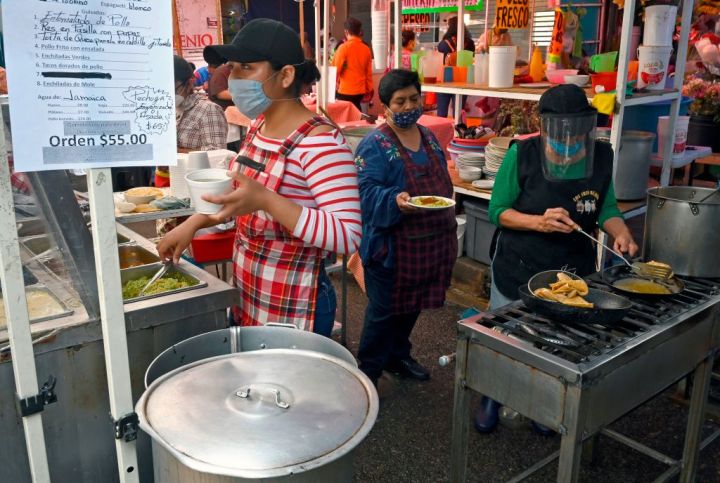
COVID-19 stokes worldwide fears about food insecurity
COVID-19 stokes worldwide fears about food insecurity

As the U.S. economy went on lockdown earlier this year, the coronavirus pandemic forced many Americans to wonder where their next meals would come from.
But it’s not just the United States. COVID-19 has exacerbated food insecurity all around the world.
Globally, 61% of people work in the informal economy, according to aid and development charity Oxfam International. Domestic workers, street vendors, taxi and delivery drivers – all daily wage earners whose livelihoods were taken away when the coronavirus pandemic required shutdowns around the world.
That meant for many who were without daily work, money dried up, and so did meals.
Mathew Truscott, Oxfam International’s Head of Humanitarian Policy, said this year, about 121 million people have been pushed to the edge of starvation.
“That, of course, is across the main hot spots you think of: Yemen, Democratic Republic of Congo, Afghanistan, Venezuela, South Sudan. But we’re also seeing hunger coming up in otherwise middle-income or developing countries: India, South Africa, Brazil, etc,” he said.
That’s because when such a large proportion of the population is forced to stay home either by sickness or government regulation, they’re at greater risk of long-term exposure to hunger.
“If you take people who are living day-to-day selling milk: If they can’t sell milk for a few days, it gets to the point where they then have to do something to have food and income. And it comes to the point where they then have to sell their means of income — so selling the cow, which had been providing them milk,” Truscott said. “And then they can’t go back to generating that income. And the same happens in urban areas where people had been taxi drivers: After so long of not being able to take fares and give taxi rides, they eventually have to sell off assets to cope. And that’s where we’re seeing this potentially long-term structural breakdown.”
To combat those effects, Oxfam International has proposed a range of solutions including $10.3 billion in humanitarian aid, cancellation of poor nations’ debt to pay for food and reinvest in agriculture, and build a more robust food system that can withstand shocks like this pandemic.
If that doesn’t happen, the consequences of food insecurity could become longer-term problems for nations of all sizes, said Dominic Moran who studies resource economics at the University of Edinburgh.
“That’s going to affect childhood nutrition: Children’s development and IQ is stunted. The human capital is degraded over the long term due to their inability to flourish,” explained Moran.
Moran explained other potential long-term economic effects of COVID-19-fueled recessions include lower investments in food supply by farmers and international organizations, and long-term unemployment, which limits an individual’s’ ability to both find new work and access food due to loss of income.
There’s a lot happening in the world. Through it all, Marketplace is here for you.
You rely on Marketplace to break down the world’s events and tell you how it affects you in a fact-based, approachable way. We rely on your financial support to keep making that possible.
Your donation today powers the independent journalism that you rely on. For just $5/month, you can help sustain Marketplace so we can keep reporting on the things that matter to you.


















